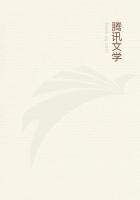I have often wondered by what arguments those who indicted Socrates could have persuaded the Athenians that his life was justly forfeit to the state. The indictment was to this effect: "Socrates is guilty of crime in refusing to recognise the gods acknowledged by the state, and importing strange divinities of his own; he is further guilty of corrupting the young." {oi grapsamenoi} = Meletus (below, IV. iv. 4, viii. 4; "Apol." 11, 19), Anytus ("Apol." 29), and Lycon. See Plat. "Apol." II. v. 18; Diog. Laert. II. v. (Socr.); M. Schanz, "Plat. Apol. mit deutschen Kemmentar, Einleitung," S. 5 foll.
In the first place, what evidence did they produce that Socrates refused to recognise the gods acknowledged by the state? Was it that he did not sacrifice? or that he dispensed with divination? On the contrary, he was often to be seen engaged in sacrifice, at home or at the common altars of the state. Nor was his dependence on divination less manifest. Indeed that saying of his, "A divinity gives me a sign," was on everybody's lips. So much so that, if I am not mistaken, it lay at the root of the imputation that he imported novel divinities; though there was no greater novelty in his case than in that of other believers in oracular help, who commonly rely on omens of all sorts: the flight or cry of birds, the utterances of man, chance meetings, or a victim's entrails. Even according to the popular conception, it is not the mere fowl, it is not the chance individual one meets, who knows what things are profitable for a man, but it is the gods who vouchsafe by such instruments to signify the same. This was also the tenet of Socrates. Only, whereas men ordinarily speak of being turned aside, or urged onwards by birds, or other creatures encountered on thepath, Socrates suited his language to his conviction. "The divinity," said he, "gives me a sign." Further, he would constantly advise his associates to do this, or beware of doing that, upon the authority of this same divine voice; and, as a matter of fact, those who listened to his warnings prospered, whilst he who turned a deaf ear to them repented afterwards. Yet, it will be readily conceded, he would hardly desire to present himself to his everyday companions in the character of either knave or fool. Whereas he would have appeared to be both, supposing the God-given revelations had but revealed his own proneness to deception. It is plain he would not have ventured on forecast at all, but for his belief that the words he spoke would in fact be verified. Then on whom, or what, was the assurance rooted, if not upon God? And if he had faith in the gods, how could he fail to recognise them?
Or, "A divine something." See "Encyc. Brit." "Socrates." Dr. H. Jackason; "The Daemon of Socrates," F. W. H. Myers; K. Joel, "Der echte und der Xenophontische Sokrates," i. p. 70 foll.; cf.Aristot. "M. M." 1182 a 10.
See Aesch. "P. V." 487, {enodious te sombolous}, "and pathway tokens," L. Campbell; Arist. "Birds," 721, {sombolon ornin}: "Frogs," 196, {to sometukhon exion}; "Eccl." 792; Hor. "Od." iii.27, 1-7.
See "Anab." III. i. 4; "Symp." iv. 48.
Or, "if his vaunted manifestations from heaven had but manifested the falsity of his judgment."But his mode of dealing with his intimates has another aspect. As regards the ordinary necessities of life, his advice was, "Act as you believe these things may best be done." But in the case of those darker problems, the issues of which are incalculable, he directed his friends to consult the oracle, whether the business should be undertaken or not. "No one," he would say, "who wishes to manage a house or city with success: no one aspiring to guide the helm of state aright, can afford to dipense with aid from above. Doubtless, skill in carpentering, building, smithying, farming, of the art of governing men, together with the theory of theseprocesses, and the sciences of arithmetic, economy, strategy, are affairs of study, and within the grasp of human intelligence. Yet there is a side even of these, and that not the least important, which the gods reserve to themselves, the bearing of which is hidden from mortal vision. Thus, let a man sow a field or plant a farm never so well, yet he cannot foretell who will gather in the fruits: another may build him a house of fairest proportion, yet he knows not who will inhabit it. Neither can a general foresee whether it will profit him to conduct a campaign, nor a politician be certain whether his leadership will turn to evil or good. Nor can the man who weds a fair wife, looking forward to joy, know whether through her he shall not reap sorrow. Neither can he who has built up a powerful connection in the state know whether he shall not by means of it be cast out of his city. To suppose that all these matters lay within the scope of human judgment, to the exclusion of the preternatural, was preternatural folly. Nor was it less extravagant to go and consult the will of Heaven on any questions which it is given to us to decide by dint of learning. As though a man should inquire, "Am I to choose an expert driver as my coachman, or one who has never handled the reins?" "Shall I appoint a mariner to be skipper of my vessel, or a landsman?" And so with respect to all we may know by numbering, weighing, and measuring. To seek advice from Heaven on such points was a sort of profanity. "Our duty is plain," he would observe; "where we are permitted to work through our natural faculties, there let us by all means apply them. But in things which are hidden, let us seek to gain knowledge from above, by divination; for the gods," he added, "grant signs to those to whom they will be gracious." Or, "in the sphere of the determined," {ta anagkaia} = certa, quorum eventus est necessarius; "things positive, the law-ordained department of life," as we might say. See Grote, "H. G." i. ch. xvi.
500 and passim.















